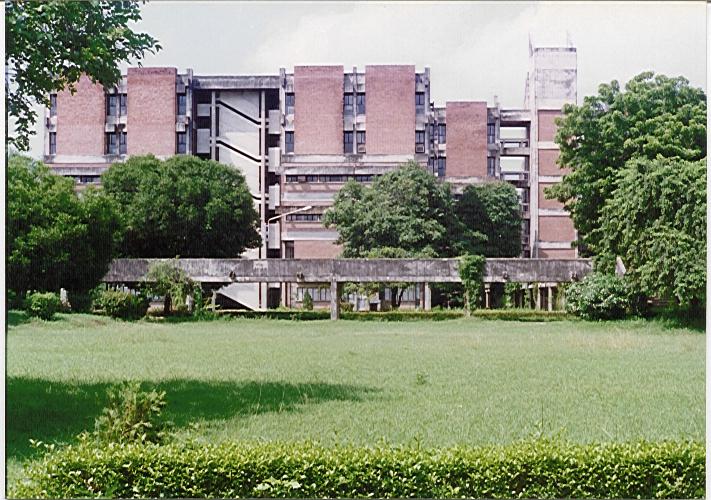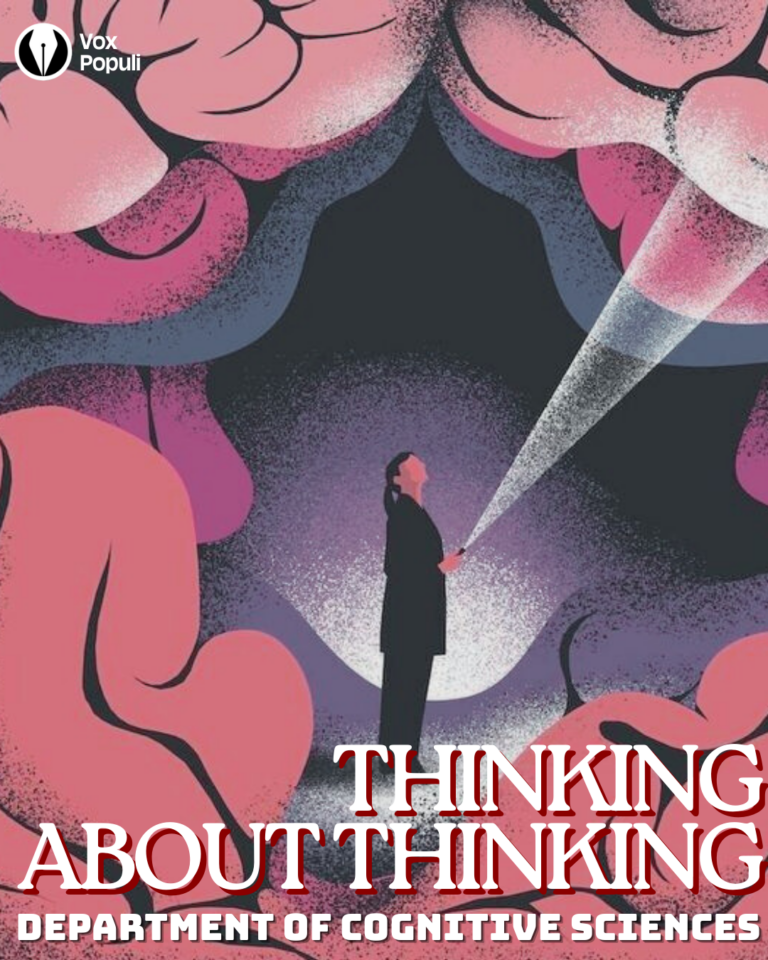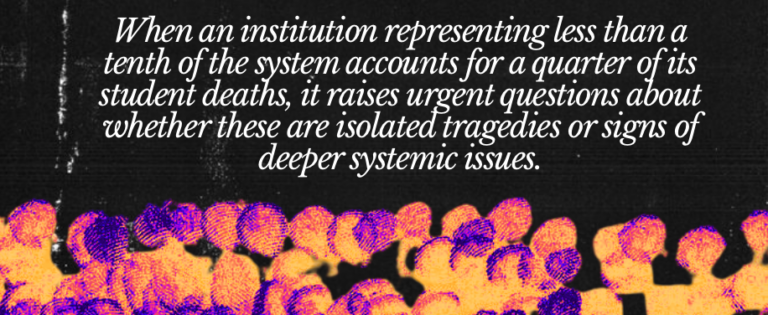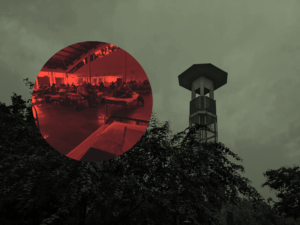Prof. Siddharth Panda took charge as the Dean of Student Affairs on October 1, 2020. On the one year anniversary of the new DoSA office, we would like to take a look at various things that have changed and been implemented in the eventful past year by the DoSA office under Prof. Panda’s leadership, thus enhancing the student’s experience and easing the processes.
Impact on festivals:
Before becoming the DoSA, Prof. Panda was the Techkriti ’20 Festival Chairman and proactively associated with the then student’s core team to understand and resolve various on-ground issues faced by students in festival bodies. After assuming the position of the DoSA, he directed all DoSA office officials towards devising collaborative measures, and brought about a much-needed ideology shift where fests are viewed as IITK’s prestigious events rather than mere student activities. This became a key in not only handling the logistics to conduct festivals, but also maintain the standard according to IIT Kanpur’s stature. One of the phenomenal initiatives was the maintenance of a constant feedback loop from the student bodies, which led to identification, addressing and quick resolution of all existing problems.
A major result of his efforts in this field is reflected by the fact that the accountability and promptness of the DoSA office towards festival issues has increased significantly. One of the parameters that highlight the success is the reduction of Turn-Around Time (TAT) to 5 working days from 20 working days, and our DoSA aims to reduce it down to 48 hours for any problem. There has been a drastic enhancement in the transparency and efficient management of financial accounts of festivals from the past DoSA.
The most prominent issue prevalent in the history of all festivals was the carrying over of work and dues from past editions of festivals leading to massive delays in planning of current editions and constant pestering to students.This has now been completely solved by the DoSA. Overall, the processes have been outlined and guidelines have been structured, and the vision of aligning festivals with IIT Kanpur’s vision thus bridging student activities with a long term mission of IIT Kanpur has come into play under Prof. Panda’s able leadership.
Facilitating the return of students:
After the first wave of COVID had subsided in the country, numerous committees were formed to streamline the return of students back to campus starting September 2020. Although Prof. Panda officially became DoSA on 1st October 2020, he along with other committee members played a pivotal role in bringing back the students and resuming normal operations in the campus in the aforementioned committees. His office in tandem with offices of DoAD, Security, DoIP, and Health Centre devised ways to ensure that the students could start coming back without any major hassles.
The proactive attitude of the DoSA office led to the return of students in a phased manner, thus making it a stand-out decision in an unprecedented and challenging situation. Proper SoPs were laid out which realistically made the return a carefully planned event. DoSA ensured and instructed all officials to promote regular sanitization, proper quarantine and availability of adequate infrastructure making the stays of the students hassle-free. When the infamous decision to send back the students was taken in April 2021 due to the onset of the deadly second wave, DoSA and the concerned offices arranged for important supplies such as masks, face shields, medicines etc. as well as conducting RT-PCR tests, aiming for the safe transportation of students.
After the second wave had died down, the DoSA office became fully engaged in managing the return of students back to campus. A separate batch of resource-constrained students was also called back to campus – a decision that DoSA supported Students’ Gymkhana. He maintained a rapport with students through constant interactions over problems and student’s apprehensions and worked towards resolving them on the highest priority. “Our 50-minute discussion classes often stretched to 2-3 hour-long discussions in which sir talked to us in the capacity of a regular person, rather than in the capacity of DoSA or a course instructor.”, said Ayush Anand, a 2nd-year student enrolled in the CHE251 course under Prof. Panda.
Creation of DSAC and ISAC
Once the students had been sent back, DoSA felt there was a need for structure in student affairs similar to that in academic affairs, implementing a ground-up mechanism that ensures a more democratic process for decision-making. Thus, ISAC (Institute Student Affairs Committee) and DSAC (Department Student Affairs Committee) were born. Apart from a convener, DSAC has student nominees. This is in line with DoSA’s belief in student governance. ISAC and DSAC function as strong recommendation bodies working on entry and exit guidelines, quarantine policies and other decisions pertaining to student affairs. The creation of both DSAC and ISAC has led to increased student representation and student voice in decision making over student affairs.
Recent protest over HMC document
Recently, there was a massive sit-in protest against regressive changes introduced by a committee formed on 16 August 2019. It was before Prof. Panda’s tenure as DoSA, this committee constituted by the HMC was formed. It is to be noted that the recommendations formulated in a report were forwarded to the Chairperson Academic Senate before he assumed the charge for DoSA. This has been further warranted by the statement “(submitted to the Chairperson Senate on September 30, 2020 for admittance in Senate)” in the interim ruling of the Chairperson Academic Senate.
The DoSA himself was at the site of the protest to answer to the student groups and bring light on this issue. Being associated with the IIT culture for a long time, himself being an undergraduate from IITKGP, the DoSA firmly believes in the IITK culture that gives rights to students. He is of the opinion that rights should be given to students & they should go hand in hand with responsibility. He further works with the philosophy that a collaborative effort between the administration and the student bodies can go a long way in building up an accountable, quick and democratic process in IITK.
Increased visibility and promptness to respond to issues raised by student representatives
It is important to understand that DoSA is a facilitator of decisions. DoSA has taken up prompt action to almost all the issues raised by the student representatives. One such key issue was the summer term of 2021. Since the students had missed out on the lab components of the course due to the academics shifting to online mode as per the new normal of covid times, the institute decided to complete the lab components of all the institute core courses in the summers, so no difficulties are faced in future regarding the completion of the degree. Since students need to pay tuition fees for the courses taken up during the summer term, many students felt it was unfair on the part of the institute to demand fees for the courses which would’ve been completed during a normal semester. When the student representatives reached out to DoSA, a decision from the office was conveyed to the campus community regarding the fee waiver. All this happened in a matter of a few hours.
Another major issue addressed promptly by the DoSA was the extension of the deadline for a scholarship. It was due to some clerical error leading to many queries on the part of students. DoSA, again went ahead to help students out with the extension of the deadline to apply for the scholarship.
Decrease in Bureaucracy
Earlier the roles of members in the DoSA office were ad hoc and tasks were performed by anyone who would be available at the moment. During the one year of his tenure as the DoSA, Professor Siddharth Panda has been prompt and has segregated the roles of various individuals in the office, increasing the ownership of the work of any individual. Now everyone has a definite set of tasks/queries which they will cater to. Measures have been taken to revamp the DoSA website where contact details of all the members from the DoSA office were shared to help students to reach out to relevant authorities without going through layers of bureaucratic delegations. To improve the efficiency of work and make things easier for the staff, various cells have been formed and each staff member reports to a dean in-charge of their activities. This has made the work environment very friendly for the staff who feel they are being valued for their work and treated well, and ensured a productive environment.
We all acknowledge the vast amount of initiatives and work done by DoSA in a small time of 1 year given the fact that he took charge of the seat in the most challenging times, when not only us but the whole world was facing hardships. We thank him and appreciate the efforts and his constant support to the student body. We are looking forward to having more new developments as he starts with the second innings of his tenure.
Writing – Ayush Anand, Bhavya Sikarwar, Dev Bharbhaya
Editing – Ananya Gupta












Great content! Keep up the good work!